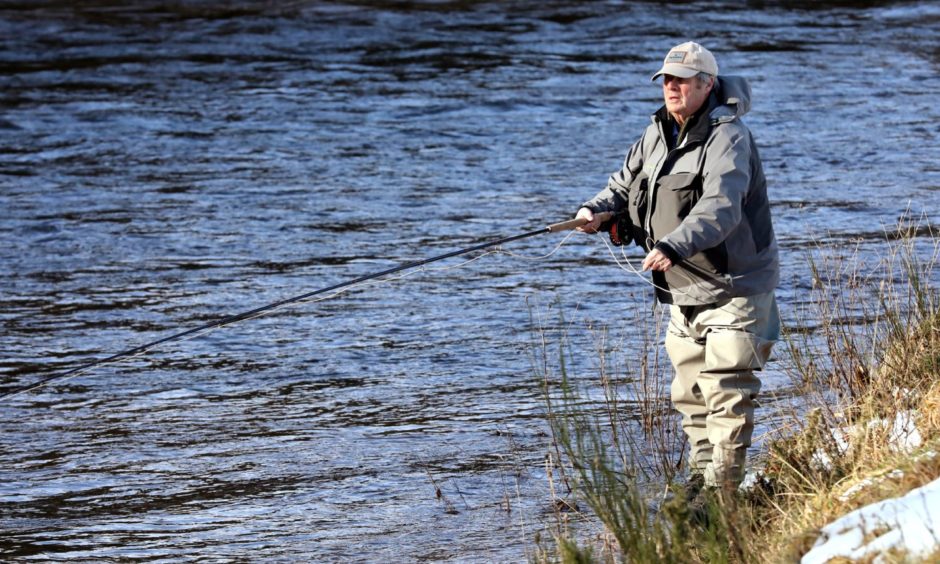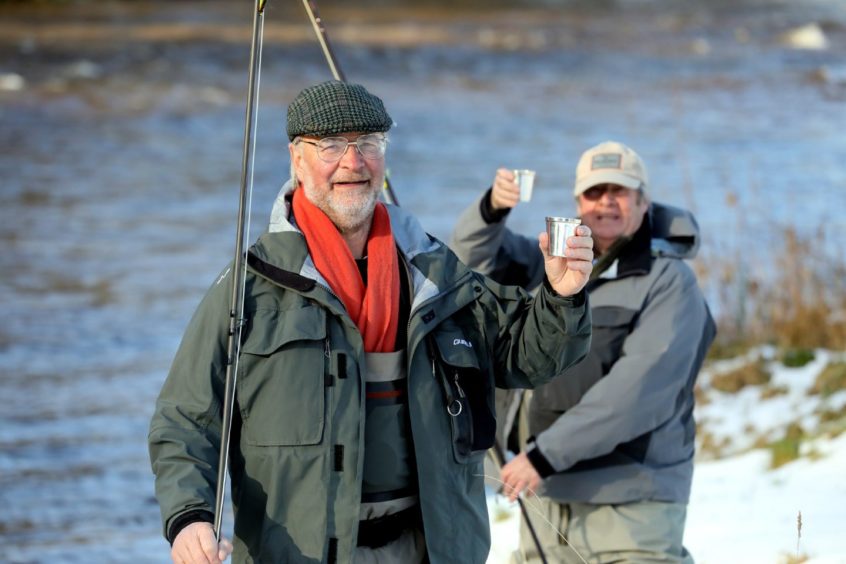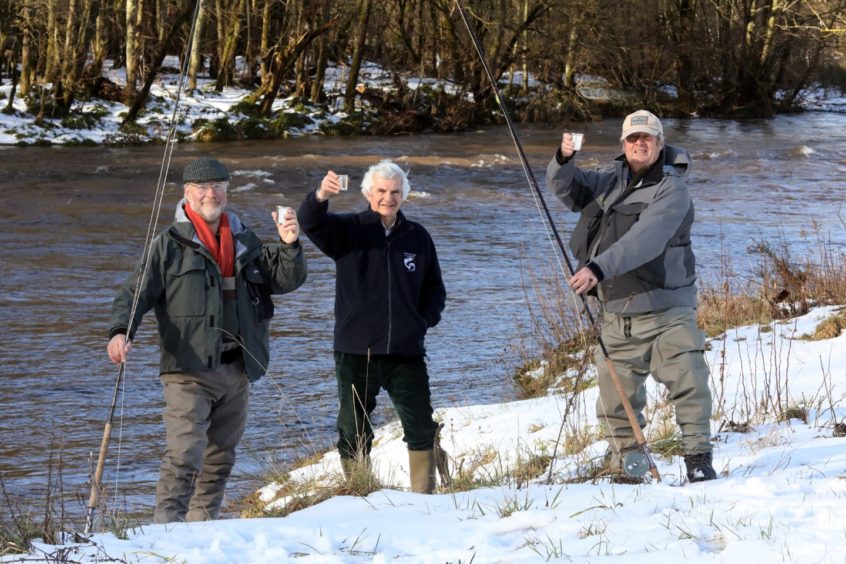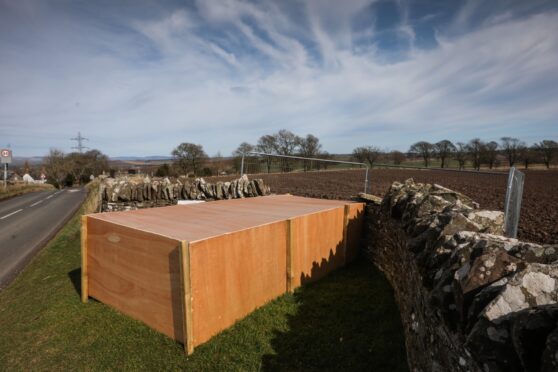Angus anglers set out in search of an iconic spring salmon as pandemic restrictions left them with the banks of the North and South Esks to themselves on the 2021 season opening day.
Covid-19 rules left the start to the season rather subdued, but after Storm Darcy’s plunging temperatures and deeps snows the fishermen were met with mild conditions.
Beats are currently unable to welcome guests from around the UK, let alone the overseas anglers who make the annual trip to Scotland in pursuit of a springer.
However, beats remain open to local anglers, many of whom are taking advantage of the opportunity to fish the rivers.
Owner of the Stracathro Beat on the River North Esk, Hughie Campbell Adamson, said: “The opening day of any season is always full of hope and optimism for the coming year.
“Despite the current situation with Covid, this year is no different.
“I am greatly looking forward to seeing what nature will bring us this, and it is wonderful to invite local anglers onto the beat.
“Angling is the perfect activity for these Covid times, as it lends itself well to social distancing, and it gets people outside in the fresh air for much needed exercise.”
Migration thousands of miles
The highly-prized spring fish have spent the last two or three winters feeding in the productive, cold waters of the Barents Sea, north of Scandinavia, or as far west as Greenland.
Having completed their 3,000 mile migration, they return to the river of their hatching, where they will remain without feeding, until it is time to spawn in November or December.
For salmon anglers, they are able to be caught with rod and line for the first couple of weeks after they enter the river, after which they will enter a period of inactivity throughout the rest of the spring and summer, until they become more active again in the autumn.
Population changes
Dr Craig MacIntyre of the Esk District Salmon Fishery Board said: “Scottish salmon populations are having to adapt to natural climate change that is occurring, as well as possible man-made climate change.
“It appears that every 80-100 years, the North Atlantic climate fluctuates, where warm, wet areas become cold and dry, and vice versa.
“One consequence of the current changes going on is that fewer salmon survive to return to Scottish rivers, however there is a greater percentage of larger salmon coming back.
“The good news is that there are still plenty of salmon returning to the North Esk, with the number of eggs laid in the river exceeding the conservation target set by Scottish Government scientists.”
He added: “Every salmon caught must be returned alive to the river by law until May 1, after which time the Esk District Salmon Fishery Board strongly recommends that every fish is returned.
“These local and government rules are in place to try to ensure we have salmon populations in our rivers as healthy as possible.”











